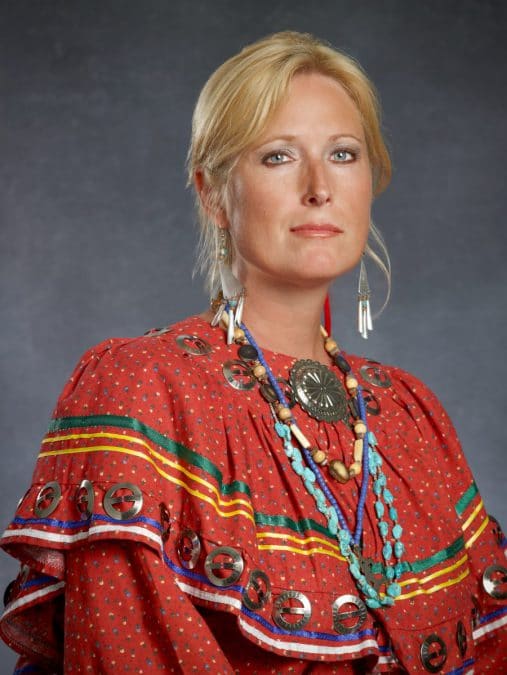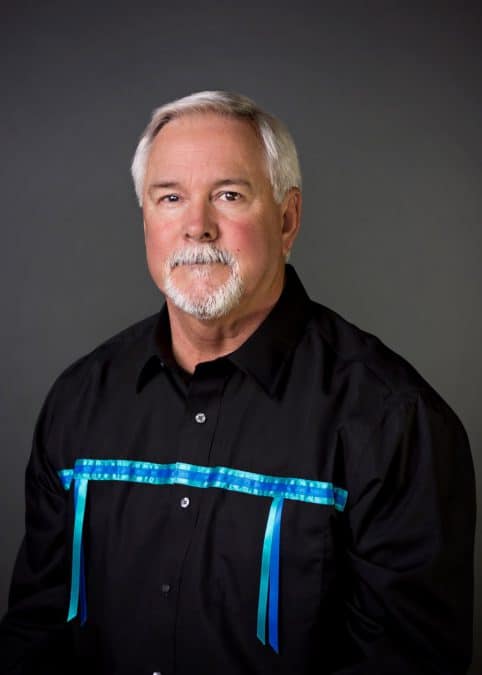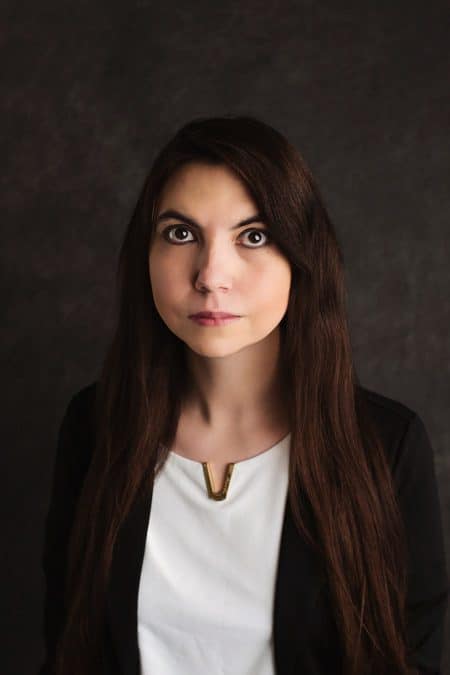In addition to the annual Tribal budget, Citizen Potawatomi voters will cast ballots for three competitive races for Oklahoma’s at-large legislative seats this June. The Hownikan asked the candidates about their backgrounds and reasons for running for Tribal office.
Lisa Kraft (incumbent)

Where are you from?
“My cousins and I were enrolled in 1989 but grew up in the Citizen Potawatomi family in Shawnee because of our grandmother, Ara Mae O’Bright O’Connor, from Sacred Heart. Actually, most of us were born in Mission Hill Hospital across from our Tribal complex and on the old Bourbonnais allotment.
“The 2007 reform of our constitution let me run for office from Stillwater, Oklahoma, and outside of Shawnee. We live in Edmond now.”
What Potawatomi family are you from?
“I descend from the Alexander Peltier line of Citizen Potawatomi. Alexander is listed on our first allotment rolls for Oklahoma in 1872 as number 113. His son William (1887 number 71) was one of four sons. William’s daughter, Mary Peltier (1887 number 73), is our family matriarch on my grandmother’s mom’s side.
“My grandmother’s parents were both Citizen Potawatomi. Her father, Andrew Jewitt O’Bright, descended from the Hiram Weld Sr. and Margaret Ogee families.”
Tell us where you graduated high school from, college and/or other education achievements?
“I graduated from Shawnee High School in 1986 at 17. I tried college but liked working more. I took an IT position in Dallas for an international coin and stamp auction house. I hit a glass ceiling and came home to get a degree at the University of Oklahoma. I graduated with a bachelors in anthropology (archaeology) in 1995. I received a Master of Arts (history/museum studies) from the University of Central Oklahoma in 2004.”
What do you do for a living?
“I have been writing grants since college at OU. In fact, I wrote my first large request for a museum exhibition for the University and then-State Archaeologist, Dr. Don Wyckoff to exhibit a 60,000 bison kill site in Freedom, Oklahoma. After becoming a mother, I managed grant submissions for Oklahoma State University (A&S).
“Twenty-five years later, I continue to write federal grants, but for struggling Oklahoma Indian tribes, to build their visions and provide services.”
How has being a Tribal member impacted your life?
“I would not have been able to afford college without the help of our Tribal scholarship program. I grew up in a single-parent household with my mother and sister. The Tribe has empowered me through education. My work with other Tribal leaders and Tribal members throughout Oklahoma has enriched my life beyond words. I can honestly say that my work is very meaningful to me. I am always thinking Potawatomi and how to advance us.”
Why, specifically, are you running for the CPN Legislature?
“I have the honor of being a Tribal legislator since 2008. After 11 years of participating in our Tribal legislature, I feel strongly that the executive branch should be taken out of the legislature. This is like having the United States president also be the Speaker of the House of Congress.
“Our legislature needs to develop its own strategic plan for the future instead of following only what the executive branch introduces as law.”
John Tom Anderson (challenger)

Where are you from?
“I was born and raised in Midwest City, Oklahoma, (16 years) and moved to Choctaw, Oklahoma, and graduated from Choctaw High School in 1974. I currently reside in Crescent, Oklahoma, and have lived here for the past 40 years.”
What Potawatomi family are you from?
“The Anderson Family. My forefathers on the Potawatomi rolls were Pete Anderson, David H. Anderson and Vinnie Anderson.”
Tell us where you graduated high school from, college and/or other education achievements?
“I graduated from Choctaw High School (1974), and then graduated from Phillips University (1978). I also, attended the Graduate School of Banking, Madison, Wisconsin, and completed it in 1985.”
What do you do for a living?
“After graduating Phillips University in 1978, I started my banking career in January 1979 with Farmers and Merchants Bank in Crescent and am still employed there, currently for 40 years.”
How has being a Tribal member impacted your life?
“For my family, I have seen the benefits of educational opportunities for my kids and relatives. It has offered insight into my heritage that I knew very little about growing up.”
Why, specifically, are you running for the CPN Legislature?
“I feel like my financial background and time served on the Potawatomi Gaming Commission could help in the budgeting and policy decisions for the future of our Tribe.”
Christina Brasfield (challenger)

Where are you from?
“I am originally from Bartlesville, Oklahoma, and currently live in Stillwater, Oklahoma.”
What Potawatomi family are you from?
“My matriarchal blood line connects to Ellen (Vieux) Bruno of the bear clan who was my great-great-grandmother. Her husband, my great-great-grandfather, was Joseph Bruno of the thunder clan. Both of my ancestors held original allotment land in the Sacred Heart area.”
Tell us where you graduated high school from, college and/or other education achievements?
“I graduated high school from Bartlesville High and received a Bachelor of Science degree in molecular biology with minors in mathematics and computer science from Rogers State University. I am also a third-degree black belt in Tae-Kwon-Do.”
What do you do for a living?
“I am a programmer and web developer. I design, develop and support websites.”
How has being a Tribal member impacted your life?
“Being a Tribal member has impacted my life in that I understand I represent a culture and people that need preserved. In my travels around the country speaking with people, sometimes it often feels like we are a myth to others. No matter where I have been, when I travel back to Shawnee, there’s a sense of overwhelming comfort that comes from knowing this is home.”
Why, specifically, are you running for the CPN Legislature?
“I am running for CPN Legislature for the first time because I want to be the change I want to see in this world. People need to know we are still here, we are not forgotten. Our culture, our history and our future all matter and being part of a larger community that makes an impact on our lives drives me to seek resources and connections that improve our quality of life.”
